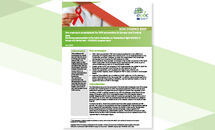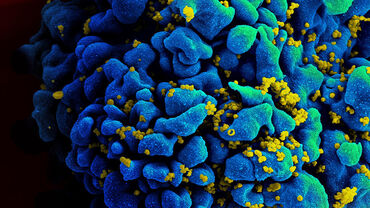Evidence brief: Pre-exposure prophylaxis for HIV prevention in Europe and Central Asia - Monitoring implementation of the Dublin Declaration on Partnership to fight HIV/AIDS in Europe and Central Asia – 2020/2021 progress report
This evidence brief summarises key issues and priorities for action in Europe and Central Asia on PrEP. It is largely based on data collected between March and September 2021 by the European Centre for Disease Prevention and Control (ECDC) to monitor implementation of the 2004 Dublin Declaration. The monitoring questionnaire was disseminated to the 53 countries that are part of the WHO European Region, plus Kosovo [1] and Liechtenstein via an online survey.
Executive Summary
Key messages
-
When taken as prescribed, PrEP (pre-exposure prophylaxis) is very effective at preventing HIV-negative people from acquiring HIV. It is an essential element in the ‘combination prevention’ necessary to reach the United Nations (UN) Sustainable Development Goal of ending the AIDS epidemic by 2030.
-
Since 2018/2019, there has been an increase in the number of countries in the World Health Organization (WHO) European Region implementing PrEP, either as part of national healthcare provision or in implementation studies.
-
Greater access to PrEP and progress in PrEP implementation are needed to reach the Sustainable Development Goal of ending the AIDS epidemic by 2030.
-
Certain key populations, such as people who inject drugs, prisoners and undocumented migrants, remain ineligible for PrEP in many countries in the European Region
-
Improved data collection and surveillance on PrEP uptake are vital for obtaining a proper understanding of who has access PrEP. In addition, best practices need to be shared, especially those relating to feasibility, cost and technical matters, in order to support the roll-out of PrEP in the Region
[1] This designation is without prejudice to positions on status, and is in line with UNSCR 1244 and the ICJ Opinion on the Kosovo Declaration of Independence
Download








